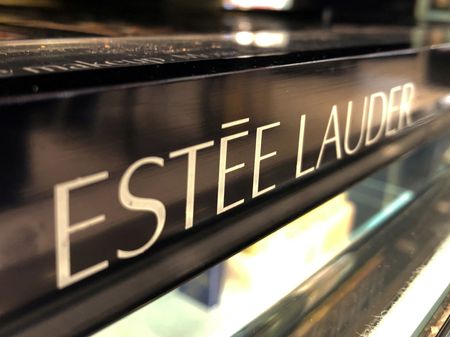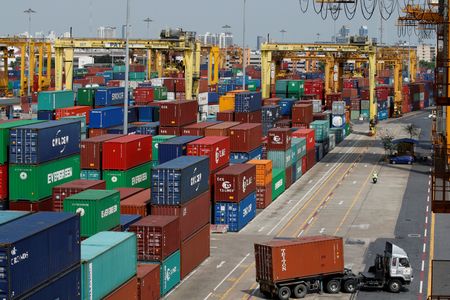By Jonathan Stempel
NEW YORK (Reuters) – Estee Lauder must face a lawsuit accusing the cosmetic giant of defrauding shareholders by concealing its overdependence on improper gray-market sales in China, a federal judge in Manhattan ruled on Monday.
U.S. District Judge Arun Subramanian said shareholders identified “several misleading omissions” and “half-truths” in Estee disclosures, related to the negative sales impact from a January 2022 government crackdown on the “daigou” gray market.
Shareholders in the proposed class action said Estee became dependent in China on “daigou,” or duty-free purchases by resellers, after the COVID-19 pandemic began, especially in the Hainan province.
They said the New York-based company concealed the truth about how the crackdown was hurting sales until November 1, 2023, causing its shares to plunge 19% and wiping out about $8.7 billion of market value.
“Defendants attributed the decline to everything but the crackdown and reassured investors that an upswing was coming soon,” Subramanian wrote.
“What matters is that Estée Lauder touted the reasons for its success while leaving out the parts of the truth it found inconvenient,” he continued. “The telling of half-truths — that’s what the securities laws don’t tolerate.”
The Estee defendants also include former Chief Executive Fabrizio Freda and former Chief Financial Officer Tracey Travis.
Estee and lawyers for the defendants did not immediately respond to requests for comment.
In seeking a dismissal, the defendants said there was neither proof of fraudulent intent, nor a showing that legally actionable false statements caused shareholder losses.
But the judge said Freda and Travis should have been able to pinpoint the “daigou” crackdown as a major cause of falling sales, cited accusations about their attentiveness to sales data and that Estee devoted an entire team to analyze “daigou” sales.
The proposed class action covers shareholders from February 3, 2022 to October 31, 2023.
Estee shares have lost nearly half their value since the latter date in part because of China, which accounted for about one-quarter of sales in 2024.
The case is In re Estee Lauder Co Securities Litigation decision, U.S. District Court, Southern District of New York, No. 23-10669.
(Reporting by Jonathan Stempel; Editing by Sandra Maler)











